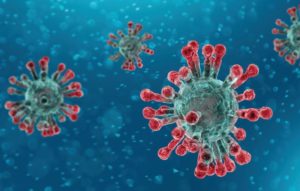Coronavirus/COVID-19 and Prostate Cancer Patients
 The URF’s thoughts are with those affected by the coronavirus (COVID-19) pandemic. The Prostate Cancer Foundation has published special precautions for prostate cancer patients and their friends and loved ones during the coronavirus (COVID-19) pandemic. The coronavirus can affect the immune system, reducing the number of white blood cells that are needed to fight infections. This leads to respiratory disease for most patients who become sick with COVID-19.
The URF’s thoughts are with those affected by the coronavirus (COVID-19) pandemic. The Prostate Cancer Foundation has published special precautions for prostate cancer patients and their friends and loved ones during the coronavirus (COVID-19) pandemic. The coronavirus can affect the immune system, reducing the number of white blood cells that are needed to fight infections. This leads to respiratory disease for most patients who become sick with COVID-19.
It is important not only for prostate cancer patients, but also for their families and friends, to follow the guidelines to avoid contracting or spreading the disease. The most important are washing your hands with soap and water for 20 seconds, staying six feet away from people, and avoiding touching your face where the virus can enter through your eyes, nose, and mouth. All persons having symptoms, such as fever (greater than 100 degrees F), cough, shortness of breath, or fatigue should contact a physician to determine whether they need to be examined or tested for the virus. Symptoms may appear 2-14 days after exposure to the virus.
Patients who have early-stage prostate cancer being managed with active surveillance, radiation therapy, or surgery are not at an increased risk of severe disease, because early-stage prostate cancer does not affect the immune system. Similarly, patients receiving hormonal therapy are not at an increased risk of severe disease.
In contrast, chemotherapy for advanced prostate cancer impairs the immune system and patients on chemotherapy are at higher risk for all types of infection, including coronavirus infection.
Also, patients having other co- existing medical conditions, such as high blood pressure, diabetes, heart disease, asthma, emphysema, heavy smoking and conditions or treatments that directly impair the immune system, such as inflammatory bowel disease or other auto-immune diseases that are sometimes treated with immunosuppressive drugs, organ transplant recipients, and HIV patients are at increased risk for serious disease.







